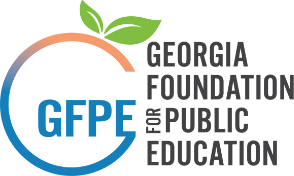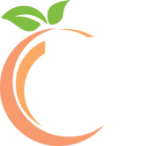For Schools
The PEACH Education Tax Credit is currently capped at $15 million annually and is approved on a first-come, first-served basis. Georgia's PEACH Education Tax Credit offers our state's public schools with access to funding in their quest for educational excellence for all students. But did you know that your school district/school can use the PEACH Education Tax Credit as its fundraising vehicle by becoming a school fundraising plan partner?
Using predetermined guidelines, the Georgia Foundation for Public Education (GFPE) allows your system to raise funds and then use those dollars to support up to three priority projects with a focus on innovation*.
The best part?
Your families and local stakeholders have the assurance that their PEACH Education Tax Credit contributions will help advance public education for their community.
Steps to Becoming a Partner
Schedule a call with Paige Buzbee or Jaclyn Colona to provide a PEACH Fundraising Plan Overview and to discuss the prospective projects.
Complete the PEACH Fundraising Plan application with up to three innovative projects. Please see the guidance on innovation below. In addition, please see the fundraising limits and guidance below to develop your fundraising goal(s). Once complete, e-mail the application to Jaclyn Colona, Director of Grant Strategies.
Market the PEACH Education Tax Credit to your school community and local industry.
Report back to GFPE the overall outcomes of the program.
Fundraising Limit Guidelines
Partners must adhere to the following fundraising limits and guidelines:
District Partners
- Campaign 1: ≤ $1,000,000
- Campaign 2: ≤ $3,000,000
- Campaign 3: ≤ $5,000,000
School Partners
- Campaign 1: ≤ $250,000
- Campaign 2: ≤ $1,000,000
- Campaign 3: ≤ $2,000,000
Goals must be attainable within a 12-month period. If the partner reaches the fundraising goal before the 12-month period from onboarding date, the partner may reapply for another set of projects at a new fundraising goal (based on the above limits). If the partner does not reach the fundraising goal at the end of the 12-month period, the partner has the following options:
- If the partner has not raised any funds, it may withdraw from the partnership.
- If the partner has raised funds, the partner may award the funds raised to schools in the district to implement innovative practices and then withdraw from the partnership. The partner must complete a Final Evaluation Form to finalize the partnership.
- The partner may revise and implement a new fundraising campaign and hold the funds raised to date until they reach the fundraising goal.
By following these simple steps, the funds your community raises – all at dollar-for-dollar tax credit for the donor – will go directly to your system’s/school’s project. However, tax credit dollars may not be earmarked for the benefit of any specific student and parents may not knowingly donate to the benefit of their child. Tax credit dollars may not be used to reimburse projects that are already being implemented.
GFPE's Definition of Innovation
Innovative education programs contribute solutions to improve outcomes for Georgia students.
- Targets the root cause of a problem
- Is inclusive
- Is disruptive and transformative
- Is contextualized
- Is a breakthrough approach
- Is collaborative
More information on how GFPE defines innovation is available here.
What GFPE Provides for Fundraising Partners
- An online portal for easy access for taxpayers to apply for and make their contribution to the PEACH Education Tax Credit
- Tracking by school district of requested PEACH Education Tax Credits and donations once credits have been received.
- Marketing materials, language, FAQs, etc. to make the fundraising as painless and effective as possible.
- A fundraising webinar to help school districts approach both individuals and corporations in their community for tax credit gifts.
- An annual report distributed to all members of the state legislature as well as to all donors and taxpayer contributors.
- Upon request as needed, one-on-one consultation with school district to help develop strategies for specific taxpayer donors.

